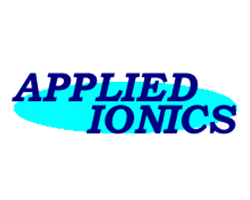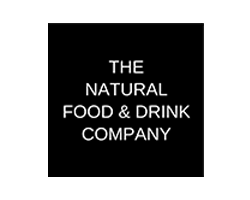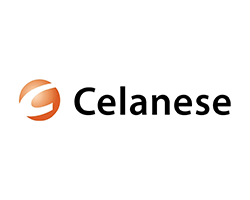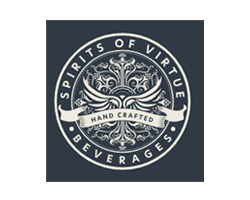Industrial Filter Solutions
Ensuring Purity, Protection, and Performance
Liquid filtration is essential to many industrial processes, ensuring product integrity, removing impurities, safeguarding equipment, and maintaining operational efficiency. Industries such as food, beverage, chemicals, water treatment, fine chemicals, paints and coatings rely on tailored filtration systems to meet the specific requirements of each application.
By collaborating closely with end users, design engineers, and service and maintenance teams, PoreFiltration has successfully delivered filtration solutions across a broad range of industrial applications.
Depth Filters
Polypropylene, nylon or high strength depth filters with absolute and nominal ratings between 0.5 to 100 microns.
Industrial Bag Filters
Available in a number of non-woven felts - PP, PE, Nylon, Nomex and PTFE. Micron ratings from 1 to 200 microns.
HighFlow Filter Housings
A range of 316 st.st or GRP housings for larger scale industrial water applications catering for flows between 200 m3/hr to 1,400 m3/hr and rated to 10bar.
Carbon Filters
Activated carbon cartridges in either felt or sintered formats (block) for chlorine, colour and odour reduction in aqueous solutions.
Industrial Bag Filter Housings
Single or muilti bag filter st.st. housing range for any industrial liquid applications. Flows between 1 to 60 m3/hr and pressure rated to 10 bar.
Frequently Asked Questions
Industrial filters are used to remove unwanted particles or contaminants from liquids, gases, or air during industrial processes. They help protect equipment, maintain product quality, and ensure compliance with environmental or hygiene standards. Typically we are removing particulate between 100 and 5 micron in varying degrees of loading.
Common types include:
- Depth filters – for removing solids from process liquids
- HEPA filters – for improving air quality in enclosed environments
- Coalescing filters – for removing particulate and liquid contaminants in gas streams
Each type is chosen based on the application, flow rate, and required level of filtration.
You’ll need to consider:
- Contaminant type and size
- Level of contamination
- Flow rate and available operating pressure
- Clean differential pressure to be used for sizing
- Chemical compatibility and exposure times
- Operating temperature
Consulting a filtration specialist ensures you get the best filter choice for your application.
The micron rating tells you the size of particles the filter can remove. For example, a 5-micron filter removes particles 5 microns and larger.
Lower ratings mean finer filtration and shorter service life. Therefore always choose the optimum micron rating to ensure protection, but offer the longest possible service life.
Read out blog on: Micron Rating Selection Guide
This depends on your system, contaminant load, and pressure drop across the filter. Regular monitoring of differential pressure across filter will help you maximise the service life of your filter.
Typically filters are changed out when their differential pressure reaches somewhere between 2 (30 psi) to 2.5 bar (37 psi).
The majority of filters are single use. However there are self-cleaning filters and basket/screen filters that can be cleaned and reused. However they only work effectively at higher micron ratings, say 30 micron and above, and are often followed by a guard filter using a single use filter to ensure liquid quality.
Factors include:
- Correct media selection
- Maintenance and replacement intervals
- Proper installation
- Pressure and flow consistency
Read more here: Challenges that Impact Filter Cartridge Performance
Watch for sharp increase in pressure drop and short filter life. This may indicate that the filter media isn’t suitable for your particle load or that the loading has changed for some reason upstream. This can indicate a possible need to change filter type or the upstream issue may be resolved and no change is required.
Install differential pressure gauges before and after each housing. Uneven readings can suggest flow imbalance or bypassing, especially in parallel configurations.
Yes, if housings accept standard lengths and end cap configurations. However, check for compatibility in terms of pressure drop, chemical resistance, and flow rate requirements before any change is made.
If you need reliable, tested particle retention — particularly in pharma or high-purity applications — absolute-rated filters are predictable. They’re often worth the upgrade for downstream protection or final filtration stages.
Read more here: Understanding Absolute Vs Nominal Ratings in Depth Filters
Explore Related Articles
Watch our video on saving 40% on filtration costs through efficiency savings HERE.
All our filter products are manufactured to the highest quality standards with certificates of conformity and validation guides that can be provided upon request.
- All filters used in the food & beverage markets are EU and FDA compliant for material in food contact. Additionally certain products are Halal or Kosher certified.
- Filters for use in healthcare or pharmaceutical applications meet the requirements of US FDA 21 and evaluated in accordance with USP Class VI plastics.
- Products provided for automotive use in paint systems are silicone free.
Talk to us today about your filtration requirements
-
Extensive product range
-
Best Price GUARANTEED!
-
Specialist support team with deep knowledge of liquid & gas applications
-
Reliable quality & delivery
Customers We Work With


















